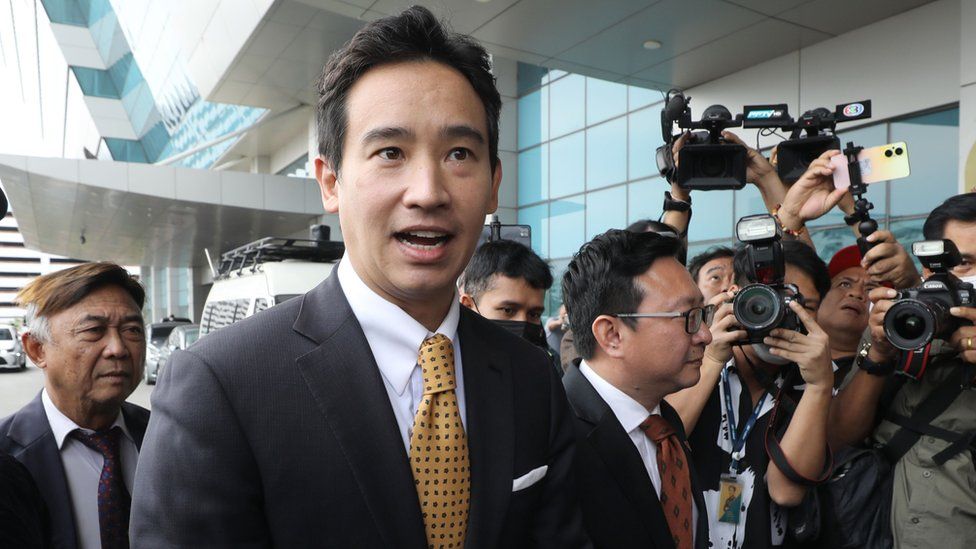ARTICLE AD BOX
 Image source, EPA
Image source, EPA
Pita Limjaroenrat's party Move Forward has been found to have breached the constitution
By Jonathan Head
South East Asia correspondent
The Thai pro-democracy party which won the most votes at last year's election could now be forced to dissolve after a court ruled its key policy illegal.
Move Forward is not in government but its promises to campaign on changing royal defamation laws violated the constitution, a Thai court has found.
Such lese majeste laws have increasingly been used to stifle political criticism, activists say.
It is possible Move Forward's leader could now be banned from politics.
Pita Limjaroenrat, a young, Harvard-educated politician, had been viewed as a significant threat to Thailand's monarchy and military-aligned elite, winning over a majority of voters in 2023 with his party's promises to rein in their influence.
Last week he had survived another legal case aimed at disqualifying him from parliament.
But he and his party failed to win the crucial second case on Wednesday on their key policy platform.
The Constitutional Court ruled that Move Forward's campaign promise to amend the lese majeste law amounted to an attempt to overthrow the entire political system in Thailand.
The verdict carries no immediate penalty, but is widely expected to be used to justify dissolving Move Forward, and banning its leaders from politics for several years.
By ruling this way, the court has in effect made the lese majeste law untouchable - even by an elected parliament.
The law has been widely criticised for stifling freedom of expression in Thailand and for its harsh operation.
Earlier this month, a 30-year-old man in Bangkok was sentenced to 50 years in jail for criticising the Thai monarchy.
And more than 260 people have been charged under the law since November 2020 - a date stamp tied to King Maha Vajiralongkorn beginning his reign.
Wednesday's ruling in the Thai courts also sends a clear message that any discussion of the powerful monarchy will not be permitted.
Four years ago Move Forward's previous incarnation, a party called Future Forward, was also dissolved after doing unexpectedly well in an election.
That action by the Constitutional Court set off months of student-led protests, in which unprecedented demands were made for changes to the monarchy.
Today, many of the leaders of those protests find themselves fighting charges under the lese majeste law, and could face many years in prison.

 1 year ago
44
1 year ago
44








 English (US) ·
English (US) ·